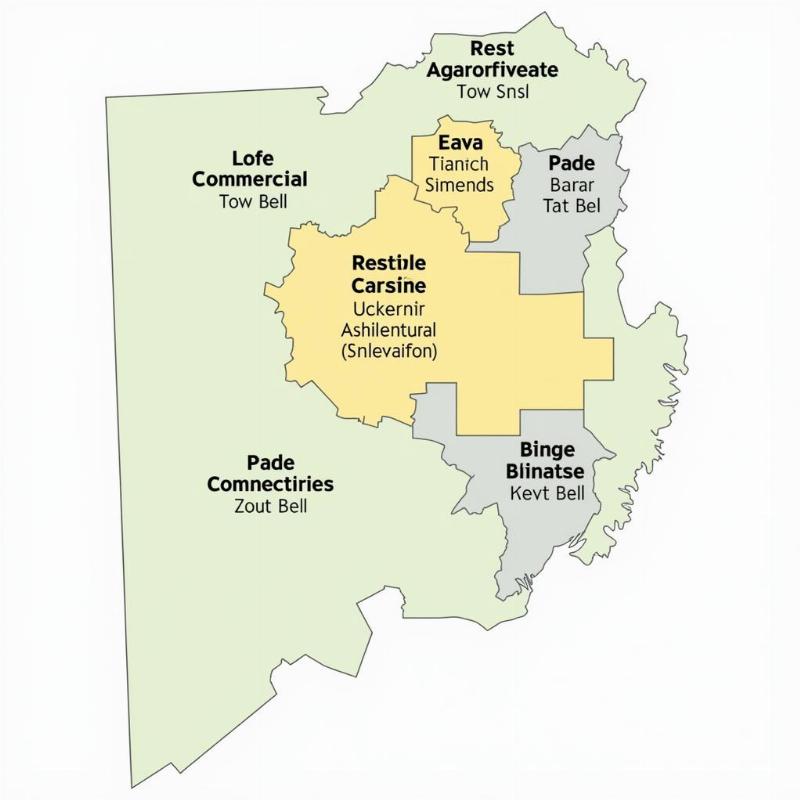Understanding zoning regulations is crucial when establishing a dog kennel in the US. Whether you’re planning a small home-based operation or a larger commercial facility, knowing the specific requirements for your location is the first step towards a successful venture. Ignoring these regulations can lead to fines, legal issues, and even the forced closure of your kennel.
Decoding Dog Kennel Zoning Regulations
Zoning ordinances vary significantly across different municipalities in the US. What’s permissible in one city or county might be prohibited in another. These regulations dictate what type of businesses can operate in specific areas, aiming to maintain order, safety, and quality of life for residents.  Dog Kennel Zoning Regulations
Dog Kennel Zoning Regulations
Residential vs. Commercial Kennels
The zoning requirements for a dog kennel are largely determined by its classification – residential or commercial. Residential kennels, typically smaller operations run from a private home, are often subject to stricter limitations regarding the number of dogs allowed and operational hours. Noise ordinances, particularly barking, are also heavily scrutinized in residential areas. Commercial kennels, designed for larger-scale operations, face different regulations concerning facility size, sanitation, and waste disposal, among other factors.
Navigating Local Zoning Ordinances
So, how do you decipher the specific zoning requirements for your planned kennel location? Start by contacting your local zoning board or planning department. They can provide you with the most up-to-date information regarding permissible kennel operations in your area. This crucial step will save you time, money, and potential legal headaches down the line.
Key Questions to Ask Your Zoning Board
- What zoning designation applies to my property?: Knowing your property’s zoning classification is fundamental to understanding the applicable regulations.
- How many dogs am I allowed to keep?: Residential areas often have strict limits on the number of dogs allowed per household.
- Are there specific requirements for kennel structures?: Regulations might dictate fence height, enclosure size, and other structural details.
- What are the noise ordinances?: Barking complaints are a common issue, so understanding noise restrictions is vital.
- What permits and licenses are required?: Operating a kennel might require specific permits and licenses beyond standard business licenses.
Beyond Zoning: Other Considerations
While zoning is a primary concern, it’s not the only factor to consider when planning a dog kennel. You must also comply with state and federal regulations regarding animal welfare, sanitation, and waste management. Researching and adhering to these broader regulations will further ensure the ethical and legal operation of your kennel.
Conclusion
Navigating the zoning requirements for a dog kennel can seem daunting, but it’s a necessary step for any responsible kennel owner. By diligently researching local ordinances and engaging with your local zoning board, you can lay a solid foundation for a successful and compliant kennel operation. Remember, complying with these regulations is not just about avoiding legal issues; it’s about ensuring the well-being of the dogs in your care and maintaining positive relationships with your community.
FAQ
- What are the penalties for violating zoning ordinances? Penalties can include fines, forced closure, and even legal action.
- Can I appeal a zoning decision? Most jurisdictions allow appeals of zoning decisions, typically through a formal process outlined by the local government.
- Do I need a lawyer to help me navigate zoning regulations? While not always necessary, consulting with a lawyer specializing in land use and zoning can be beneficial, especially for larger commercial operations.
- How often do zoning regulations change? Zoning regulations can change periodically, so staying updated with your local zoning board is essential.
- Are there resources available to help me understand zoning regulations? Your local zoning board, planning department, and even the American Kennel Club can provide resources and guidance.
- Can my neighbors complain about my dog kennel even if I comply with zoning regulations? Neighbors can still file complaints, particularly regarding noise issues. Maintaining open communication with your neighbors and addressing their concerns proactively can help prevent disputes.
- What are some common misconceptions about dog kennel zoning? A common misconception is that obtaining a business license guarantees compliance with zoning regulations. Zoning approval is a separate process.
About Beautdogs.us
Beautdogs.us – your trusted source for comprehensive dog care information in the US. We offer expert guidance on various dog breeds, from common to rare, alongside in-depth knowledge on health care, nutrition, and training. Our platform provides practical advice on responsible pet ownership, including legal matters and financial planning. We also review and recommend quality pet products, from food to grooming supplies. Whether you’re a new dog owner or an experienced one, Beautdogs.us is your go-to destination for all things canine. When you need assistance, please contact Email: [email protected] for detailed and accurate answers.